Pre-surgical Nasal Decolonization of Staphylococcus aureus: A Health Technology Assessment
- PMID: 36160757
- PMCID: PMC9470215
Pre-surgical Nasal Decolonization of Staphylococcus aureus: A Health Technology Assessment
Abstract
Background: Staphylococcus aureus (S. aureus) is the most common cause of surgical site infections, and the nose is the most common site for S. aureus colonization. Pre-surgical (in the days prior to surgery) nasal decolonization of S. aureus may reduce the bacterial load and prevent the organisms from being transferred to the surgical site, thus reducing the risk of surgical site infection. We conducted a health technology assessment of nasal decolonization of S. aureus (including methicillin-susceptible and methicillin-resistant strains) with or without topical antiseptic body wash to prevent surgical site infection in patients undergoing scheduled surgery, which included an evaluation of effectiveness, safety, cost-effectiveness, the budget impact of publicly funding nasal decolonization of S. aureus, and patient preferences and values.
Methods: We performed a systematic literature search of the clinical evidence to retrieve systematic reviews and selected and reported results from one review that was recent, of high quality, and relevant to our research question. We complemented the chosen systematic review with a literature search to identify randomized controlled trials published since the systematic review was published in 2019. We used the Risk of Bias in Systematic Reviews (ROBIS) tool to assess the risk of bias of each included systematic review and the Cochrane risk-of-bias tool for randomized controlled trials to assess the risk of bias of each included primary study. We assessed the quality of the body of evidence according to the Grading of Recommendations Assessment, Development, and Evaluation (GRADE) Working Group criteria. We performed a systematic economic literature search and conducted both cost-effectiveness and cost-utility analyses using a decision-tree model with a 1-year time horizon from the perspective of Ontario's Ministry of Health. We also analyzed the budget impact of publicly funding nasal decolonization of S. aureus in pre-surgical patients in Ontario. To contextualize the potential value of nasal decolonization, we spoke with people who had recently undergone surgery, some of whom had received nasal decolonization, and one family member of a person who had recently had surgery. We also engaged participants through an online survey.
Results: We included one systematic review and three randomized controlled trials in the clinical evidence review. In universal decolonization, compared with placebo or no intervention, nasal mupirocin alone may result in little to no difference in the incidence of overall and S. aureus-related surgical site infections in pre-surgical patients undergoing orthopaedic, cardiothoracic, general, oncologic, gynaecologic, neurologic, or abdominal digestive surgeries, regardless of S. aureus carrier status (GRADE: Moderate to Very low). Compared with placebo, nasal mupirocin alone may result in little to no difference in the incidence of overall and S. aureus-related surgical site infections in pre-surgical patients who are S. aureus carriers undergoing cardiothoracic, vascular, orthopaedic, gastrointestinal, general, oncologic, gynaecologic, or neurologic surgery (GRADE: Moderate to Very low). In targeted decolonization, compared with placebo, nasal mupirocin combined with chlorhexidine body wash lowers the incidence of S. aureus-related surgical site infection (risk ratio: 0.32 [95% confidence interval: 0.16-0.62]) in pre-surgical patients who are S. aureus carriers undergoing cardiothoracic, vascular, orthopaedic, gastrointestinal, or general surgery (GRADE: High). Compared with no intervention, nasal mupirocin combined with chlorhexidine body wash in pre-surgical patients who are not S. aureus carriers undergoing orthopaedic surgery may have little to no effect on overall surgical site infection, but the evidence is very uncertain (GRADE: Very low). Most included studies did not separate methicillin-susceptible and methicillin-resistant strains of S. aureus. No significant antimicrobial resistance was identified in the evidence reviewed; however, the existing literature was not adequately powered and did not have sufficient follow-up time to evaluate antimicrobial resistance.Our economic evaluation found that universal nasal decolonization using mupirocin combined with chlorhexidine body wash is less costly and more effective than both targeted and no nasal decolonization. Compared with no nasal decolonization treatment, universal and targeted nasal decolonization using mupirocin combined with chlorhexidine body wash would prevent 32 and 22 S. aureus-related surgical site infections, respectively, per 10,000 patients. Universal nasal decolonization would lead to cost savings, whereas targeted nasal decolonization would increase the overall cost for the health care system since patients must first be screened for S. aureus carrier status before receiving nasal decolonization with mupirocin. The annual budget impact of publicly funding universal nasal decolonization in Ontario over the next 5 years ranges from a savings of $2.98 million in year 1 to a savings of $15.09 million in year 5. The annual budget impact of publicly funding targeted nasal decolonization ranges from an additional cost of $0.08 million in year 1 to an additional cost of $0.39 million in year 5.Our interview and survey respondents felt strongly about the value of preventing surgical site infections, and most favoured a universal approach.
Conclusions: Based on the best evidence available, decolonization of S. aureus using nasal mupirocin combined with chlorhexidine body wash prior to cardiothoracic, vascular, orthopaedic, gastrointestinal, or general surgery lowers the incidence of surgical site infection caused by S. aureus in patients who are S. aureus carriers (including methicillin-susceptible and methicillin-resistant strains) (i.e., targeted decolonization). However, nasal mupirocin alone may result in little to no difference in overall surgical site infections and S. aureus-related surgical site infections in pre-surgical patients prior to orthopaedic, cardiothoracic, general, oncologic, gynaecologic, neurologic, or abdominal digestive surgeries, regardless of their S. aureus carrier status (i.e., universal decolonization). No significant antimicrobial resistance was identified in the evidence reviewed.Compared with no nasal decolonization treatment, universal nasal decolonization with mupirocin combined with chlorhexidine body wash may reduce S. aureus-related surgical site infections and lead to cost savings. Targeted nasal decolonization with mupirocin combined with chlorhexidine body wash may also reduce S. aureus-related surgical site infections but increase the overall cost of treatment for the health care system. We estimate that publicly funding universal nasal decolonization using mupirocin combined with chlorhexidine body wash would result in a total cost savings of $45.08 million over the next 5 years, whereas publicly funding targeted nasal decolonization using mupirocin combined with chlorhexidine body wash would incur an additional cost of $1.17 million over the next 5 years.People undergoing surgery value treatments aimed at preventing surgical site infections.
Copyright © Queen's Printer for Ontario, 2022.
Figures
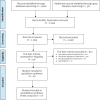








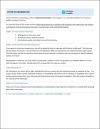
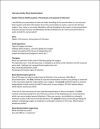
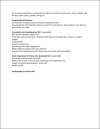
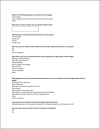
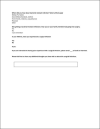
Similar articles
-
Nasal decontamination for the prevention of surgical site infection in Staphylococcus aureus carriers.Cochrane Database Syst Rev. 2017 May 18;5(5):CD012462. doi: 10.1002/14651858.CD012462.pub2. Cochrane Database Syst Rev. 2017. PMID: 28516472 Free PMC article. Review.
-
Nasal decolonization of Staphylococcus aureus and the risk of surgical site infection after surgery: a meta-analysis.Ann Clin Microbiol Antimicrob. 2020 Jul 30;19(1):33. doi: 10.1186/s12941-020-00376-w. Ann Clin Microbiol Antimicrob. 2020. PMID: 32731866 Free PMC article.
-
Effectiveness of Decolonization With Chlorhexidine and Mupirocin in Reducing Surgical Site Infections: A Systematic Review.Dimens Crit Care Nurs. 2016 Jul-Aug;35(4):204-22. doi: 10.1097/DCC.0000000000000192. Dimens Crit Care Nurs. 2016. PMID: 27258958 Review.
-
Internet-Delivered Cognitive Behavioural Therapy for Post-traumatic Stress Disorder or Acute Stress Disorder: A Health Technology Assessment.Ont Health Technol Assess Ser. 2021 Jun 1;21(9):1-120. eCollection 2021. Ont Health Technol Assess Ser. 2021. PMID: 34527087 Free PMC article.
-
Nasal Iodophor Antiseptic vs Nasal Mupirocin Antibiotic in the Setting of Chlorhexidine Bathing to Prevent Infections in Adult ICUs: A Randomized Clinical Trial.JAMA. 2023 Oct 10;330(14):1337-1347. doi: 10.1001/jama.2023.17219. JAMA. 2023. PMID: 37815567 Free PMC article. Clinical Trial.
Cited by
-
Prevalence of Staphylococcus aureus Infections in the Implantation of Orthopedic Devices in a Third-Level Hospital: An Observational Cohort Study.Pathogens. 2024 Jul 26;13(8):620. doi: 10.3390/pathogens13080620. Pathogens. 2024. PMID: 39204221 Free PMC article.
References
-
- Canadian Agency for Drugs and Technologies in Health. Preoperative skin antiseptic preparations and application techniques for preventing surgical site infections: a systematic review of the clinical evidence and guidelines [Internet]. Ottawa (ON): The Agency; 2011. [cited 2021 Apr 6]. Available from: https://www.ncbi.nlm.nih.gov/books/NBK174549/pdf/Bookshelf_NBK174549.pdf - PubMed
-
- US Centers for Disease Control and Prevention. Surgical site infection (SSI) event [Internet]. Atlanta (GA): The Centers; 2017. [cited 2021 Dec 15]. Available from: https://www.cdc.gov/nhsn/pdfs/pscmanual/9pscssicurrent.pdf
-
- George S, Leasure AR, Horstmanshof D. Effectiveness of decolonization with chlorhexidine and mupirocin in reducing surgical site infections: a systematic review. Dimens Crit Care Nurs. 2016;35(4):204–22. - PubMed
-
- Sharara SL, Maragakis LL, Cosgrove SE. Decolonization of Staphylococcus aureus. Infect Dis Clin North Am. 2021;35(1):107–33. - PubMed
Publication types
MeSH terms
Substances
LinkOut - more resources
Full Text Sources
Medical
